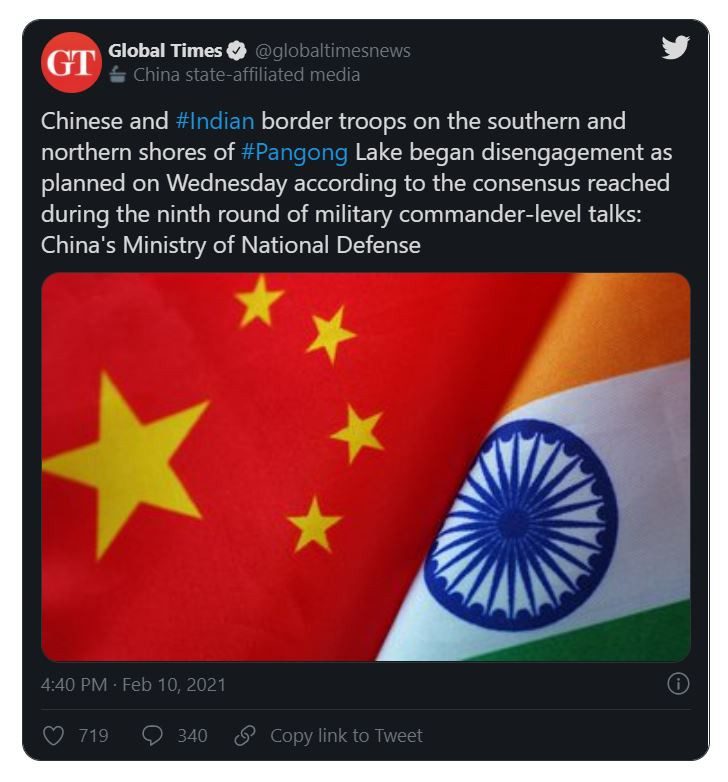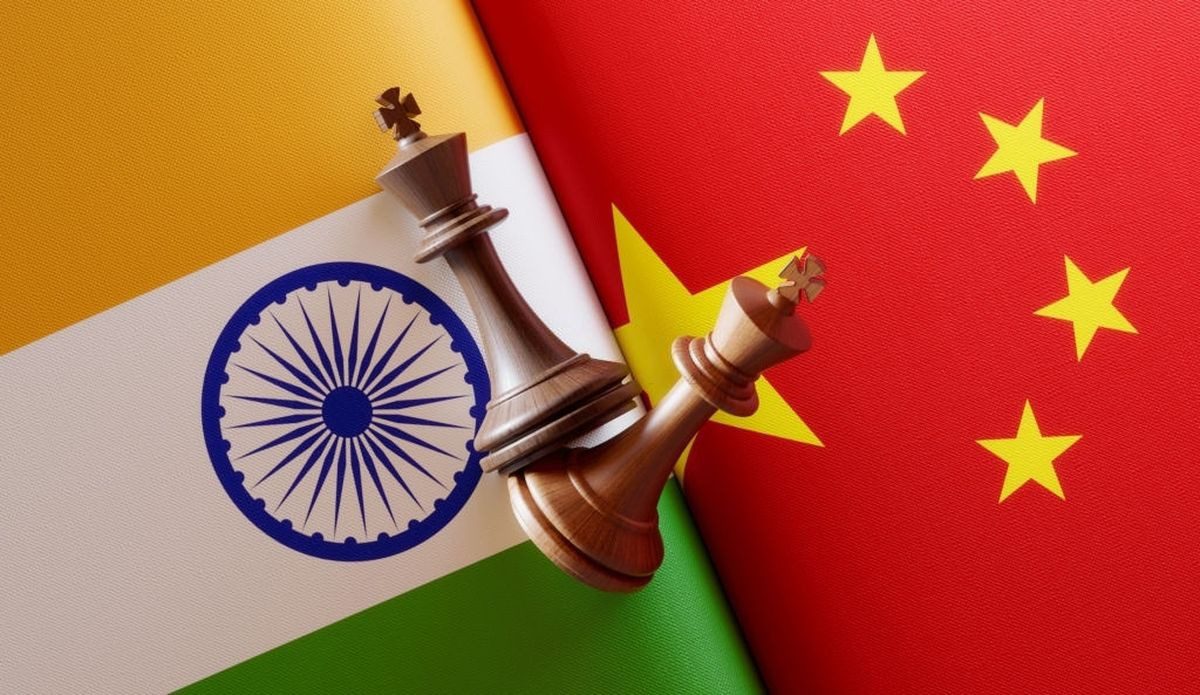The Chinese state media quoting the Chinese Defence Ministry has said that the disengagement has begun as per the consensus reached during the ninth round of military commander-level talks.
In a move towards a peaceful disengagement process, both India and China have agreed to pull back troops from a bitterly contested Pangong Tso Lake in the Ladakh region of the western Himalayas. The Indian defense minister confirmed the breakthrough after a months-long standoff on the disputed border.
Global Times, the State-affiliated news website from China reported that Chinese experts hailed the move as a key breakthrough that will ease border tensions and hopefully lead to peace and stability.
Frontline troops of the Chinese and Indian armies posted at the southern and northern banks of the Pangong Tso began simultaneous, scheduled disengagement on Wednesday, in accordance with a consensus reached during the ninth round of corps commander-level meeting, Wu Qian, a spokesperson at China’s Ministry of National Defense, announced in a statement on the same day.
Agreement to disengage

Rajnath Singh told the Indian parliament the understanding had been reached after several rounds of talks between military commanders and diplomats from the nuclear-armed neighbors.
“Our sustained talks with China have led to agreement on disengagement on the north and south banks of the Pangong lake,” he said.
The standoff began in April last year when India said Chinese troops had encroached deep into its side of the Line of Actual Control (LAC) or the de facto border in the Ladakh area in the western Himalayas.
China said its troops were operating in its own area and accused Indian border guards of provocative actions.
In June last year, 20 Indian soldiers were killed when the two sides clashed with iron rods and stones in the Galwan Valley, the first combat losses on the border in 45 years. China also suffered casualties but did not disclose the numbers.
Singh said the Indian government had told Beijing that peace and tranquility had been seriously disturbed by the actions of Chinese troops and bilateral ties had suffered.
“To ensure disengagement in friction points along the LAC, it was our view that troops of both sides, who are now in close proximity, should vacate the forward deployments made in 2020 and return to the permanent and accepted bases,” he said.
Once the disengagement has been completed at the high altitude Pangong lake, military commanders will meet within 48 hours to discuss pull back from other areas, Singh said. Both countries are still in a stand-off situation at various points in LAC.
India and China fought a war in 1962 and since then have not been able to agree on their 3,500-kilometre long border.
On June 15 last year, Indian and Chinese troops had clashed at the Galwan Valley in Ladakh in which 20 Indian soldiers had lost their lives. An unspecified number of Chinese soldiers were also killed in that physical clash, but Beijing has never come clean on the figure. Indian and American intelligence put the Chinese toll near 40.



